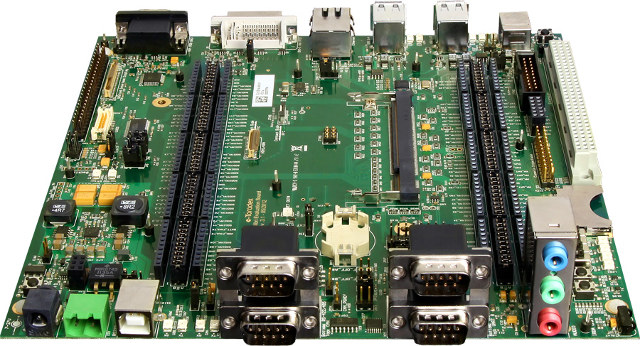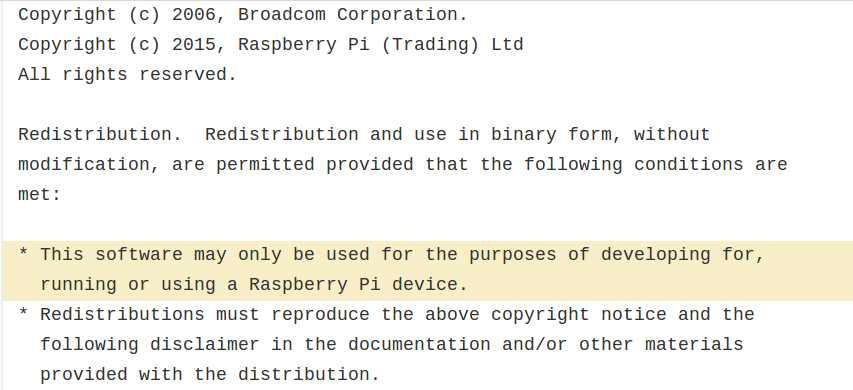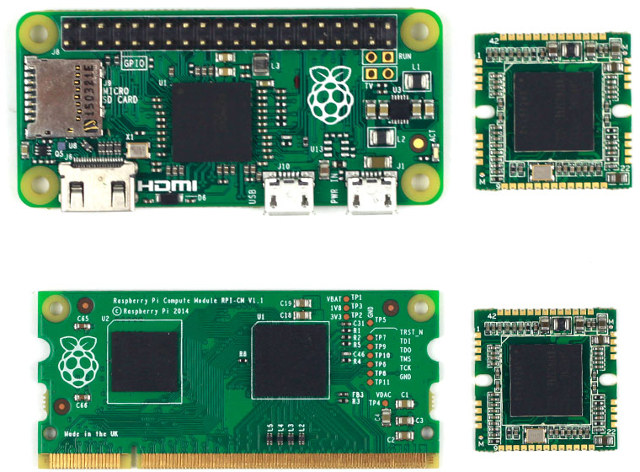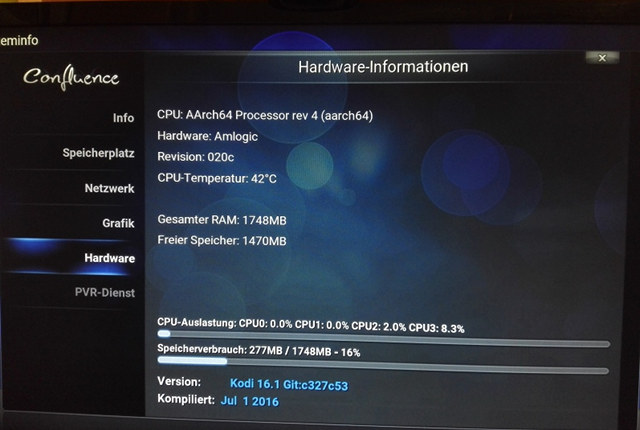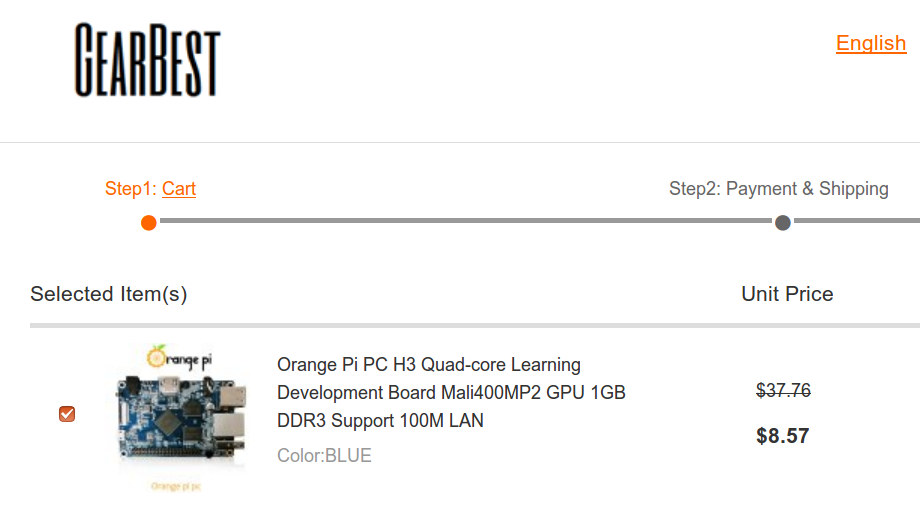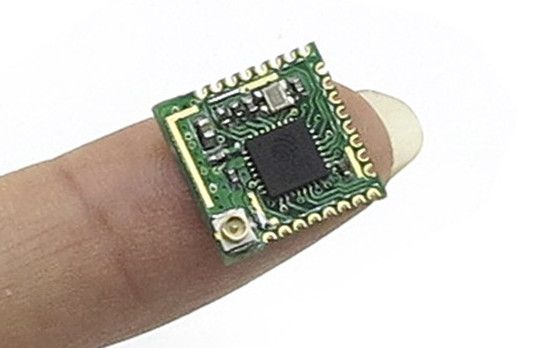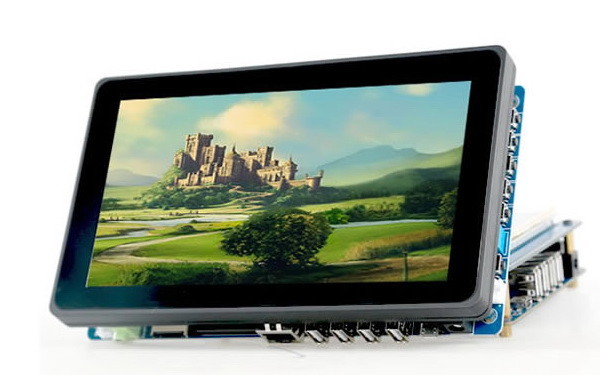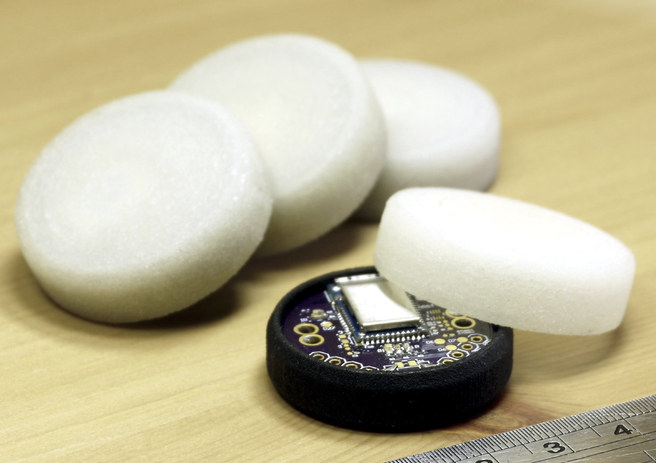This is a guest post by Leonardo Graboski Veiga, working for Toradex. Introduction This article’s main goals are: to cross-compile the PJSIP libraries and the PJSUA API reference implementation; deploy it to the target system; give an overview about the SIP protocol; and explore the reference implementation features, regarding audio only. For this purpose, a Computer on Module (CoM) from Toradex was chosen in the following configuration: Colibri iMX6DL* + Colibri Evaluation Board. The evaluation board and CoM are displayed in Figures 1 and 2, respectively. VOIP or Voice over IP, is a term designed to refer to a set of methods and technologies targeted for the implementation of telephony services over the Internet. For the purpose of this article, the scope will be limited to the use of a reference implementation built upon the SIP communication handling protocol by means of the PJSIP libraries and PJSUA2 API. If […]
Raspberry Pi Bootloader License Precludes it to Run on Competing Broadcom BCM283x Boards
Yesterday I wrote about ArduCAM Raspberry Pi compatible module, that packs most of the features of Raspberry Pi Zero or Pi Compute module into a 24x24mm board, and is based on Broadcom BCM2835 processor. One person also started a thread on Raspberry Pi forums about the tiny module, and one of the Raspberry Pi engineer and forum moderator replied that will would breach the bootloader license. The important part is the sentence highlighted above: This software may only be used for the purpose of developing for, running or using a Raspberry Pi device. ArduCAM module is only Raspberry Pi compatible, so it would indeed breach the license, and you can get into troubles if you planned to use that module in a commercial project, especially in countries where IP protection is taking seriously. This raises a few questions. First why did the Raspberry Pi foundation chose that restrictive license? The […]
ArduCAM has designed a Tiny Coin-Sized Raspberry Pi Compatible Module
Now you can design your own custom hardware and leverage Raspberry Pi software, by integrating Raspberry Pi Compute module (and soon Raspberry Pi 3 Compute module) into your custom designed baseboard. But if you’d like something more compact, and even more compact than a Raspberry Pi Zero or RPi Compute module, ArduCAM has been developing a 24x24mm Raspberry Pi compatible system-on-module powered by Broadcom BCM2835 processor. ArduCAM has also designed a small adapter board “UC-343 Rev. A” for the module with the following specifications: SoC – Broadcom BCM2835 ARM11 Processor @ 700 MHz (or 1GHz?) with Videocore IV GPU System Memory – 256MB/512MB LPDDR2 Storage – micro SD card slot USB – 2x micro USB ports including one for power only Camera – 1x MIPI CSI connector supporting 5MP or 8MP Pi cameras (dual camera support) Expansion – AV output header 16-pin and 8-pin headers (unpopulated) with GPIOs, 2x I2C, […]
LibreELEC 7.0 Ported to Amlogic S905 TV Boxes & ODROID-C2 Board
Most TV boxes are now sold pre-loaded with Android, but there’s still a fair amount of people who only want to play videos in their box, or only run Kodi, so they may prefer a Linux experience. Some companies provide ready-to-use solution such as ARNU Box Mach 10 64-bit Pure Linux, but in some cases it’s also possible to side-load OpenELEC or LibreELEC, with the main advantage being that it is usually quite cheaper at the cost of being a bit more complicated. Thanks to a comment by Sabai, I discovered LibreELEC 7.0.0 had been (unofficially) ported to Amlogic S905 TV boxes, and tested one devices such as NEXBOX A95X (S905), WeTek Hub, Beelink S905 Mini MXIII, MXQ Pro 4K, and others. If you own an ODROID-C2 board, you can load another LibreELEC 7.0.0 image. If you are unsure whether your Android TV box is supported, you should first try […]
Orange Pi PC Board is now selling for $8.57 Shipped (Promo)
[update: the flash sale is over] Orange Pi PC is an ARM Linux development board based on Allwinner H3 processor, that is relatively popular thanks to its low price/features ratio, and decent Linux support mostly thanks to the combined work of linux-sunxi and armbian communities. The board normally sells for $15 + shipping on Aliexpress, but GearBest appears to have a promotion for $8.57 shipped. Before you go ahead with any purchase. You’ll notice the board is shown for $9.23 in China and US-LA warehouses, but $24.35 in their European warehouse. The price (china warehouse) goes down to $8.57 once you had it to the cart. It could be a genuine promotion, but it could also be a mistake. If the latter, you’ll get a refund or possibly a voucher of the same value for future purchases. I’ve asked my contact at GearBest, but no answer yet. GearBest confirmed it […]
PSF-A85 is a $2 ESP8285 WiFi Board for IoT and Wearables
Last month, we found out that Espressif has made a smaller version of ESP8266 targeting wearables called ESP8285, but the only development board available at the time was quite more expensive than usual at about $25. ITEAD has now released an ESP8285 module with some I/Os and an IPEX connector which they sell for just $1.99 + shipping. PSF-A85 specifications: SoC – Espressif ESP8285 Tensila WiFi SoC @ 80/160 MHz with 1MB flash Connectivity WiFi 802.11 b/g/n/d/e/i/k/r with support for STA/AP/STA+AP modes, WPA/WPA2 PSK and WEP security Antenna – IPEX connector (antenna not included) or “stamp hole interface” Expansion – 24-pin with GPIO, PWM, UART up to 460800 bps, SPI, ADC, Power Supply – 3.3 V Dimensions – 13.7 x 13.4 mm More technical information include the schematics (PDF only) and ESP8285 datasheet can be found in the Wiki, which sadly does not contain any software / getting started information, […]
sModule SBC-x6818 Development Kit based on Samsung S5P6818 Processor Includes a 7″ Touchscreen
For some reasons, Samsung S5P4418 and S5P6818 quad and eight Cortex A53 core processors – likely made by Nexell – have been quite popular with embedded systems companies based in China. So after Graperain, Boardcon, and FriendlyARM, there’s at least one another company offering solutions with either processor, as sModule, a subsidiary of CoreWind, has now launched systems-on-module, single board computers, and development kits with the 64-bit ARM SoCs. In this post, I’ll cover one of their development kit including their CORE6818 CPU module, a baseboard, and an optional 7″ capacitive touch display.. sModule SBC-x6818 development kit specifications: CORE6818 CPU module SoC – Samsung S5P6818 octa-core ARM Cortex A53 processor @ 1.4 to 1.6 GHz with Mali-400MP 3D GPU System Memory – 1GB DDR3 (2GB optional) Storage – 8GB eMMC Flash (4 & 16GB optional) Ethernet – Realtek RTL8211E Gigabit Ethernet transceiver 180-pin “interface” to baseboard Power Supply – 3.7 […]
Puck.js Bluetooth 5.0 Ready Beacon is Programmable with JavaScript (Crowdfunding)
I first found out about Bluetooth LE tags in 2012 with SticknFind project, and since then many other companies have designed their own Bluetooth beacon mostly to find objects such as your keys or pets. Puck.js is also a Bluetooth 4.2 LE beacon, but has many more features including compatibility with the upcoming Bluetooth 5.0 standard, and some GPIOs programmable with JavaScript (Espruino implementation), and corresponding visual programming editor. Puck.js hardware specifications: Bluetooth Smart SoC – Nordic Semi nRF52832 ARM Cortex-M4F micro-controller @ 64 MHz Connectivity Bluetooth 4.2 LE/smart, Bluetooth 5.0 Ready; up to 80 meters range in open space On-chip NFC support Expansion – 8x through holes with 6x GPIOs, and 2x power signals Sensors – MAC3110 magnetometer, on-chip temperature sensor Misc – 1x tactile button, 4x LEDs (R, G, B, IR) Battery – CR2032 210mAh battery good for about a year (application dependent) Dimensions – 35mm diameter, 10mm […]


